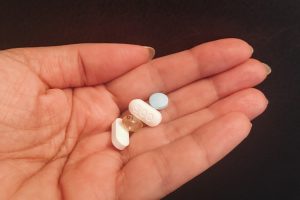Sinusitis or sinus infection is an inflammation of the sinuses that can result in nose pain and discomfort. It is more common among adults, but children and pets can also be affected. The small air-filled cavities in your face, known as the sinuses, are lined with a mucous membrane that traps dirt particles, germs, and other irritants as they come into contact with it. When something irritates this membrane, it causes an immune response that results in the same inflammation.
There are several different types of sinusitis, varying in severity from very mild to severely debilitating. Depending on which type you have and how severe it is, your symptoms may range from mild discomfort to absolute misery and pain— furthermore, most people who get infected experience recurring infections within their lifetime. Continue reading this article to learn more about what causes sinusitis, its symptoms, diagnosis, and treatment.
What is Sinus Infection?
Sinusitis occurs when the sinuses are inflamed, causing nose pain and discomfort. It is more common among adults, but children and pets can also be affected.
There are several different types of sinus infections, varying in severity from very mild to severely debilitating. Depending on which type you have and how severe it is, your symptoms may range from mild discomfort to absolute misery and pain. In addition, most people who get infected experience recurring infections within their lifetime.
Sinus Infection symptoms
Knowing if you have a sinus infection can be challenging, especially when feeling fine. However, some symptoms can help determine if you are suffering from a sinus infection.
- Pain in your cheek or forehead
- Temporary hearing loss
- Nasal congestion and discharge
- Swollen lymph nodes in your neck or around the eyes
What causes sinusitis?
Bacterial or viral infections may cause sinusitis. Another potential cause of sinusitis is a common cold that lasts longer than 2-3 weeks.
The risk of getting sinusitis increases each year you age. If your symptoms include pain and pressure around the eye, nose, and mouth, you may have sinusitis if you have trouble breathing or swallowing.
If your symptoms are severe, such as severe headache, fever, and ear pain, you could also have another condition like meningitis or brain abscess.
On the other hand, suppose you have a chronic (ongoing) fever with no other symptoms for 4-6 weeks without explanation from doctors. In that case, you should get checked out for possible infections in your body, like sinusitis, because the fever can be coming from an illness that is not caused by the flu virus.
How is a sinus infection diagnosed?
A doctor typically makes the diagnosis of sinusitis through a physical exam as well as lab results. In addition, your doctor may order a CT scan or MRI if symptoms are severe enough to warrant an imaging test. In some cases, a diagnostic tool such as a CT sinogram or MRI can help identify the source of infection and determine the best course of treatment.
If your doctor suspects you have sinusitis, they will likely test your blood to check for evidence of inflammation in your body and could also send you home with antibiotics.
If symptoms persist after antibiotic therapy, one possible cause may be that your sinuses are blocked, which requires further testing for sinus surgery to determine what’s going on.
Is sinusitis contagious?
Sinus infections can be contagious, but it isn’t always easy to tell who carries the disease. Some common ways you may get infected are contacting someone exposed recently, coughing, and sneezing. If you have symptoms of a sinus infection, make sure to stay clear from others until you have the all-clear from your doctor.
What Happens if Sinusitis Isn’t Treated?
If left untreated, sinus infections can worsen and become life-threatening. You will likely need a course of antibiotics or surgery to clear the infection, depending on the severity of your case. The longer you delay seeing a doctor, the worse your symptoms may get.
If you have been diagnosed with a sinus infection and don’t know what to do next, it’s best to talk to your doctor about treatment options.
Sinusitis can cause more severe issues such as pneumonia or meningitis. These complications are rare, but they do happen in some cases. Once again, it’s best to contact your doctor if you think something is wrong immediately.
When left untreated, sinusitis can lead to other health complications like chronic headaches and pancreatic cancer!
What complications are associated with sinusitis?
One of the most common complications linked with sinusitis is a complication of the teeth.
The infected sinus fluid, or mucous membrane, can cause gingivitis, an oral inflammation. If this happens, your dentist will help you clear up the infection and prevent continued damage to your teeth and gums.
Another potential complication is pneumonia. This occurs when the inflamed sinuses make it impossible for the airways to function correctly, meaning you cannot breathe properly.
It would be best if you took care of yourself by regularly washing your hands and other hand-worn items, such as watches or jewelry, before touching them again after handling something contaminated with bacteria from a person with sinusitis.
In addition to these severe complications, there are some less-serious ones, such as ear infections and chronic coughs. These symptoms may be more frequent if they occur along with a cold or flu season.
How Is Sinusitis Treated?
There are different ways of treating sinusitis, depending on the severity of the condition. In cases where symptoms of the infection are mild and infrequent, these treatments may include over-the-counter decongestants, antihistamines, and painkillers such as ibuprofen. Surgery may be prescribed in more severe cases that cause a large amount of discomfort and pain.
Three options are available if you are searching for a natural remedy to heal your sinus condition. First, take eucalyptus oil in pill form or drink nettle tea with honey.
You could also eat garlic cloves which have antibacterial properties to help clear up your infection!
How can I prevent sinusitis?
You can treat sinusitis symptoms with simple and over-the-counter medications. However, it would be best if you avoided these to prevent a recurrence.
If you have acute sinusitis, you must avoid activities that may irritate your nose or cause the disease to flare up again, such as sneezing, smoking, or blowing your nose too often.
When should I see the doctor about sinusitis?
You may likely have sinusitis if you have a persistent cough, postnasal drip, nasal blockage, fever, or any other signs of an infection that lasts more than a few days.
If these symptoms persist for more than three weeks without easing up and you are experiencing other problems, such as loss of appetite and extreme fatigue, then it’s time to see your doctor. In addition to seeing your doctor, getting a course of antibiotics is essential if you have sinusitis.
You can take antibiotics for several weeks to eliminate the bacteria causing the infection so long as the root cause has not been identified.
In cases where this is not possible, antibiotics can help prevent further infections from occurring in the future.

Will I need lifestyle changes to deal with sinusitis?
Many people can avoid sinusitis by making minor lifestyle changes to help prevent bacteria buildup. These changes include staying hydrated and using a humidifier at night.
However, if you don’t notice any improvement after taking these measures for 2-3 weeks, it may be time to see your doctor.
Some other symptoms associated with sinusitis are a headache or pressure behind your eyes, facial swelling and tenderness, bad breath, pain on one side or both sides of your face, a runny nose and cough, fever, and facial pressure.
Suppose you have any of these symptoms and are experiencing them over several days or weeks. In that case, it is highly advised to see your doctor for further evaluation to receive treatment as soon as possible and eliminate the risk factors that lead to complications.
Do I need antibiotics for every sinus infection?
Antibiotics are not necessary for every sinus infection, even when it is severe. However, the longer the condition stays untreated, the more likely you may need antibiotics.
It’s important to remember that antibiotic treatment can cause side effects and antibiotic resistance.
So before taking antibiotics, be sure to ask your doctor about alternatives, such as:
- Taking an over-the-counter pain reliever
- Using a humidifier at home
- Maintaining a healthy lifestyle
- Using over-the-counter saline nasal sprays to clear congestion from your nose
- Appropriately resting and managing pain through medication
Frequently Asked Questions (FAQs)
A sinus infection’s side effects can vary and range from mild to severe.
Sinusitis is a medical condition that causes inflammation of the tissues around the nose, cheeks, and sinuses, lined with mucous membranes.
The pain and discomfort associated with this condition can vary from person to person. For example, it may be dull, constant, severe, piercing, and shooting.
- Pain in the front of the face (face pain)
- Nausea and vomiting
- Runny nose Cough
- Sinus pain or pressure (pain under your eyes)
- Sore throat
- Headaches
- Drowsiness
If untreated, chronic sinus infections can lead to more severe complications. However, you can avoid the symptoms by following a simple nose care routine (cleaning nasal passages with a nasal spray, avoiding tobacco products, alcohol, etc.), consuming quality nutrition, getting enough sleep, and avoiding stress.
Several factors can cause chronic sinusitis, but some of the most common are:
- Allergies
- Poor hygiene
- Stuffy nose
- Dry air
- Change in weather
- Seasonal variation
- Trapping of dust, pollen, and other particles in the nose.
Rinse your nasal passages with saline Epsom salt water mix and hold your head over a basin for 5 minutes to wash out your sinuses clean with no more pain or pressure.
Keep a saline nasal spray bottle handy to use for continued relief.
Follow these steps:
Mix 2 teaspoons of Epsom salts (magnesium sulfate) in 8 oz of lukewarm water. Next, add 8 oz of filtered or bottled water to make an Epsom salt mix. When mixed with an Epsom salt container, water mix instantly becomes super concentrated mixtures.
If you prefer, you can dilute water mix in a regular 8oz glass bottle or even use 2 oz shot glass bottles if you want to control the flow better. Make sure to shake well before using if after making diluted water mix.
The sinuses may become infected with various viruses, bacteria, or even fungi. The most common type of chronic sinusitis is an orbital or ethmoid one. This type of sinusitis occurs when bacteria or viruses infect the lining of the ethmoid air cells.
A type of acute sinusitis is a frontal or pit and fissure sinus infection. This type of sinus infection happens when bacteria, viruses, or fungi enter the frontal/pit tissue through tiny hair follicles in the nose.
Nasal polyps are a type of growth that develops in the nasal passages. They can be congenital, acquired from external sources, or may emerge within the nasal passage itself.
They are sometimes pigmented and narrowed at their base and may arise from any part of the nasal septum on one side, including at its free border. They may form as freestanding structures or grow together with other structures within a single nasal horn.
As well as being painful, chronic nasal polyps can cause blockage and result in snuffly breathing at night time. The treatment for chronic nasal polyps involves laser surgery or laser tweezing to remove them from the nose and either medication alone or in combination with surgical removal, depending on which approach is taken.
They can also be treated with a nose spray to prevent them from cropping up again. In addition, painkilling drops can also relieve any pain they may cause during treatment.
Puerarinasalobes are small growths that develop on the inside surfaces of both sides of both nostrils and can occur more commonly in people who have allergies. These growths appear as small bumps in the skin, which sometimes bleed when scratched.
However, they don’t take any other shape and do not tend to spread throughout your nares.
Although these are often hard to see unless you shine a torchlight into your nose, Rhinophyma is a condition with numerous milk-white bumps on both sides of your nose, one after another.
However, like puerarinasalobes, it does not appear to involve any blockages within either nare nor does it seem to run in families.





